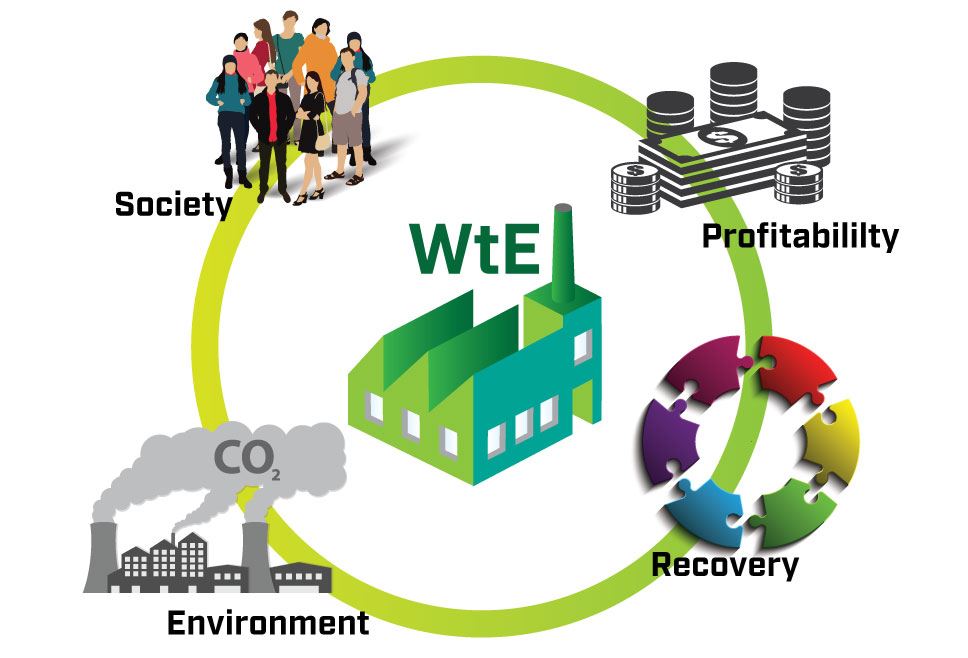Primary objective:
Strengthen the position of WtE in the Norwegian renewable energy future by knowledge-based improvement of energy, environmental and economic performance
Secondary objectives:
- Obtain optimum WtE plant operation through increased stability and predictability, giving increased energy efficiency, decreased emissions and consumables use and increased plant capacity and availability
- Develop a dynamic modelling approach; supported by extensive data mining and industrial experience, combined with advanced sensors for online fuel characterisation, to achieve optimum WtE plant operation
- Evaluate the feasibility of heat storage and fly ash valorisation
- Evaluate the impact of the circular economy on the WtE sector
- Educate skilled graduates and undergraduates for the WtE sector
- Disseminate the project' results both nationally and internationally

WtE and the society (waste management – energy – environment – economy – politics – public)
- WtE is a EnergiX KPN project co-funded by the Research Council of Norway and industry parters (see below).
- Funding 17.7 MNOK
- Project period: 2018-2020

